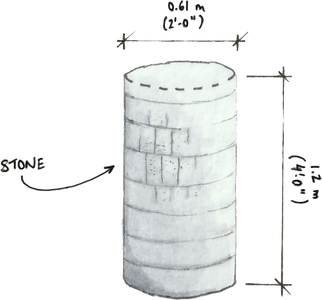
Antoine
Antoine Stépan Terjanian is an Ag-economist, Statistician, Geomatician and a member of the Armenian Cultural Association of Ottawa. He loves music and dance and has taught Armenian folk dances in many countries around the world. He also hosts outdoors camps and celebrations in the family’s farm in the Gatineau.
He now works part-time as a consultant for international organizations and also plans, finances, and operates charitable development-oriented projects in Armenia.
Emotional Attachments
“For the Bible, it’s a very precious thing, its probably one of the most precious things we have in the house… It’s the only thing they brought over with them. When they were robbed, nobody stole a book. It’s what stayed with them. It has been in the family since 1860.”
''I'm the eldest boy in the family, so I for some reason get to keep it and I try to preserve it as best as I can... As is the tradition, they mark in the Bible different dates, like the birth of children."


"I think it's a bowl that was given to someone for their baptism, and they got their name inscribed on it. I guess this is the dish he would eat in ... Actually, it says Moses Ema nu—'Little Moses'. I just bought it in 1970 or '71 from a professor who had been teaching in Turkey, and he had picked up some old copper things that he was selling, so I picked up the one that had the Armenian inscription on it."

"It's a very precious thing. It's probably one of the most precious things we have in the house for me. There are birthdays... and [as] is the tradition, we mark the bible with different dates of the birth of the family's] children ... Sometimes I think [about] what they went through to carry this over but I'm sure they were carrying a lot of other things but when they were robbed, nobody cared [to rob] a book so that's what stayed with them."

"It's always protected. I somehow feel the responsibility to preserve it."

"It's something from my part of Armenia. To me it has an emotional value... My family never got back there. My father never went back to where he was born."

Technique

"Lavash bread is unleavened bread and it is made very, very thin, and traditionally it is cooked in a tonir... Tandoor is a hole in the ground and is about 4 feet deep and 2 feet in diameter... The recipe that Moses taught me was to use an oven... but today, because it's a heat wave, I am making an innovation - I'm going to cook it in my barbecue outside."

"What I'm doing now, I'm separating the pieces because I probably have not cut them very well... I rush, but they separate easily... It's for painting and renovations, but this is what they use in Halab... This is the easiest way to separate and serve."




"Some people do it in lozenges but I make it into small squares. I find it easier. I make it into small shape so not too big so people can eat it with one hand and usually I take it to community events and if people need more than one, it's easy to eat; it's a mouthful."
"If you want more, you can eat more but you don't have to get a big piece and if you're watching your weight or don't like it or you're not hungry, you don't have to eat more than one."


"When I'm cooking on a tonir or cooking a sheep for instance, I don't use a thermometer. I put my hands near the thing I want to cook and if I can count to ten without lifting my hand, it means it's not hot enough. If I can't count to five, than it's too hot... It is hot but if your hand starts cooking, it means you're cooking the meat!"
Innovation
"This was a recipe adapted by my friend, Moses. He taught me how to do it the easy way."
"The original recipe was to not fold the phyllo like I'm folding it, but to make it in a larger pan which I modified because I don't want to make that much. I found the phyllo fits exactly in this Pyrex pan that I have."


"Instead of using the traditional recipe, or honey, or syrup made with sugar cane, I'm going to use—to make it a Canadian thing—maple syrup, which is made in our village where our family fa rm is in Quebec... It makes it uniquely Canadian when you serve pakhlava with maple syrup as opposed to honey, which is a lot more expensive, or with what they usually do in Syrian pastry shops. They do it with sugar cane now."
"Moses taught me to use an oven... but today, because it's a heatwave, I am making an innovation; I am cooking on my barbecue outside... that's only a practical thing, so I don't heat up the house."

"I try to be very environmentally conscious. I don't pretend to be a guru, but I try when I learn something to make it so that we save this planet."
Memory
"Remember your name without losing it whether you are poor or whether you are wealthy."
"I found out later on that my father had never told our sad story to any of my brothers and sisters... there was a historian who was writing testimonies from survivors of the genocide, and she asked me if I could write a little bit, so I wrote a four-page story of what it is, and at that time I sent it to my nieces and nephew and my children.”


"I worked internationally a lot and lived in different countries ... this is from the Musee d'Orsay, a reproduction that we bought. Those are messages that people sent my daughter for her birthday, and I printed them out."

